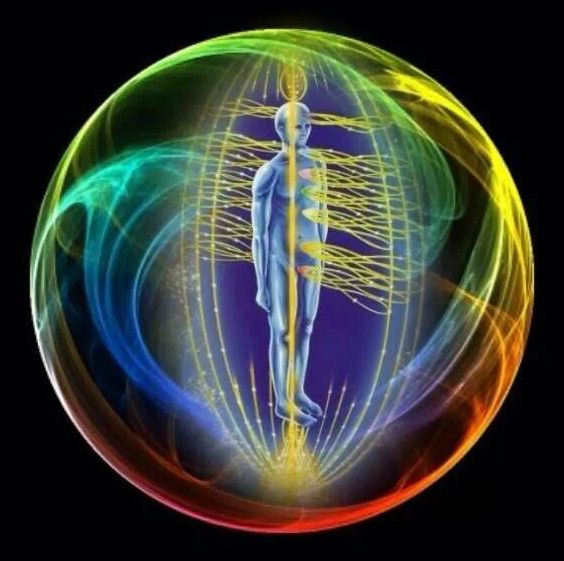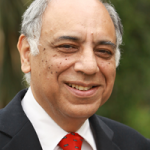
What I have learnt is that the secret to good health is to know how your body works. And when you start understanding that, the body starts talking to you
ANJUM ALTAF
My body spoke. I heard it. And it was right. This was such a startling occurrence that I have to write about it. The main takeaway though is not about myself but about us.
Here, in brief, is the background. Courtesy of five years of intense research and three years of practice in which I was trial patient number two, my wife has transformed my health. From carrying around a pillbox stuffed with tablets for diabetes, hypertension, cholesterol, and high uric acid, I am off everything. And I feel different. From one who despaired of ever writing a book, I have written half a dozen in the last three years.
I am not going into the details of the regimen except to say that rather than focus on how much I eat, my attention is now directed to what I eat and when I eat it. The rest is all structured around that. The one thing I am convinced of, based on my own and my parents’ experience, is that doctors are not much help with chronic diseases. They start when a problem manifests itself and then attempt to suppress it with medication. There is never any cure; the doses just keep on increasing over time.
But chronic diseases result from metabolic disorders and these disorders are at work for decades before a disease appears. All that while, individuals are lulled into thinking they are in excellent health. And even when they discover otherwise, doctors don’t do anything to address the underlying cause.
What I have learnt is that the secret to good health is to know how your body works. And when you start understanding that, the body starts talking to you. After three years, I heard it for the first time yesterday. And just a minor adjustment pleased my body and it rewarded me with a much more fulfilling day.
Let me substantiate all I have said above with an example in hindsight. I have had skin tags for over fifteen years. Every time I have been to a dermatologist, I have been offered their painless removal. I know now the skin tags were telling me I had insulin resistance. None of the dermatologists ever alerted me to that. I have had fasting glucose tests innumerable times. Never did a doctor ask to check my insulin profile. As test patient number two, that was the first thing I did. Sure enough, I have insulin resistance. Only with that knowledge can I begin to reverse it and I am on course to doing so.
Needless to say, it is too late for me to reverse all the harm that has occurred over decades of not understanding or listening to the body but such knowledge can transform the lives of those who are still in their thirties. We are surrounded by a pandemic of chronic diseases which medicine is powerless to deal with. In this domain, medicine that thrives on ignorance must yield to wellness that rests on knowledge.
I wish my wife would find a way to get this message across to all those who can ill-afford a family member falling victim to a prolonged chronic illness. That is all it takes to push households into precariousness and the unending burden of chronic care.
Processed foods have already been mentioned as the culprits in the case of the body. In the case of nature, fossil fuels have played the same role. In the words of Professor deFries “this efficient solution has a major problem
Fortunately, we don’t need to wait provided someone translates into our local languages an invaluable book by Ruth DeFries – What Would Nature Do? A Guide for Our Uncertain Times which won the Columbia University Press Distinguished Book Award for 2022. Ruth DeFries is a University Professor in the Department of Ecology, Evolution, and Environmental Biology at Columbia University and a recipient of the MacArthur “Genius” Fellowship. The book is written for a general audience and brings a lifetime of learning to offer a guide to a better life.
That better life includes our health. Professor DeFries explains how “efficiently produced oils, sweeteners, and cereal for animal feed” have contributed to a “lifetime of health woes” ranging from diabetes and heart disease to obesity. But that is not the key contribution; she describes what these foods do inside the human body in a must-read section titled Complexity In The Gut. It is part of knowing your body to understand the role played by microbes in the gut, the importance of the right balance of these microbes, how what we put into our body impacts this balance, and what antibiotics do to it. It is this knowledge that will enable us to take charge of our health.
What adds immense value to the book is its scope that extends the paradigm to our world itself. Both nature and the human body are fine-tuned machines that have attained their self-regulating balance over a very long evolution. All of a sudden, within the last three hundred years in the case of nature and the last seventy five years in the case of the body, human beings have put an unbearable burden on these self-regulating mechanisms.
Processed foods have already been mentioned as the culprits in the case of the body. In the case of nature, fossil fuels have played the same role. In the words of Professor DeFries “this efficient solution has a major problem. There is no circuit breaker to take the by-product, carbon dioxide emitted into the atmosphere, out of the air at the same pace as it is going in. The result is civilization-altering heat waves, inundated shorelines, disruption to a reasonably predictable and benign climate that underlies modern civilization’s systems to grow food, live in cities, and stay safe from storms.”
The implications are stark both for the health of our world and our bodies unless we question the god of efficiency that reigns at the heart of the capitalist economy and drives its goal of unlimited growth. For long, there have been those who have stood up for social justice as a contender with a higher claim. Now, when our bodies and the world we inhabit are both crying out for relief, we have to press the case for good sense itself. Our future is at stake. Greed, in both its micro and macro manifestations, is rushing us beyond the tipping point.
___________________
 Dr. Anjum Altaf earned his PhD from Stanford University. He was Professor of Economics and Dean of the School of Humanities and Social Sciences at the Lahore University of Management Sciences. He is the author of Critical Reflections on the Single National Curriculum and the Medium of Instruction and What We Get Wrong About Education in Pakistan, both published by Folio Books, Lahore, in 2022.
Dr. Anjum Altaf earned his PhD from Stanford University. He was Professor of Economics and Dean of the School of Humanities and Social Sciences at the Lahore University of Management Sciences. He is the author of Critical Reflections on the Single National Curriculum and the Medium of Instruction and What We Get Wrong About Education in Pakistan, both published by Folio Books, Lahore, in 2022.
Courtesy: Dr. Anjum Altaf |The South Asian Idea (Posted on May 22, 2023)